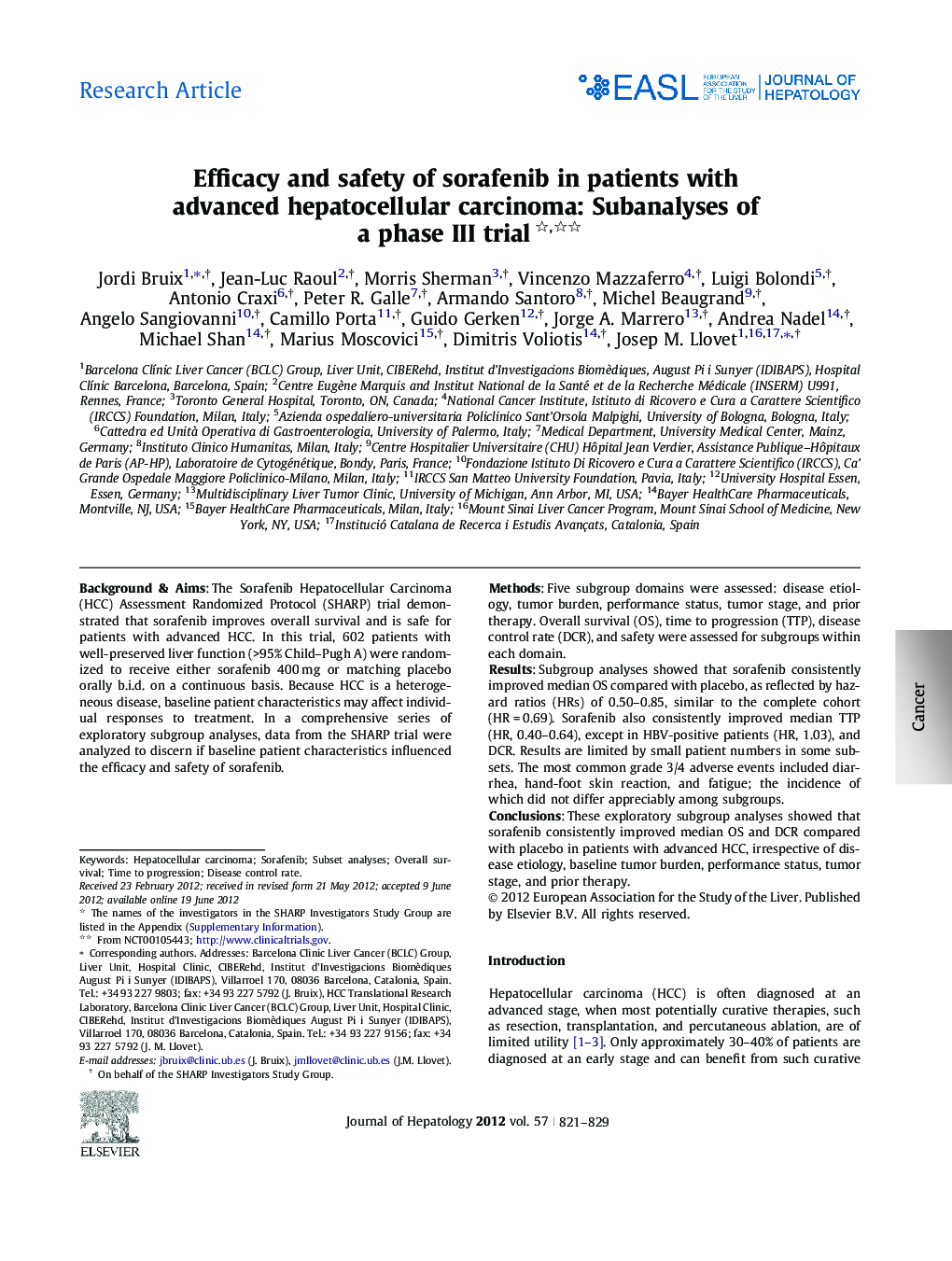| Article ID | Journal | Published Year | Pages | File Type |
|---|---|---|---|---|
| 6106330 | Journal of Hepatology | 2012 | 9 Pages |
Background & AimsThe Sorafenib Hepatocellular Carcinoma (HCC) Assessment Randomized Protocol (SHARP) trial demonstrated that sorafenib improves overall survival and is safe for patients with advanced HCC. In this trial, 602 patients with well-preserved liver function (>95% Child-Pugh A) were randomized to receive either sorafenib 400Â mg or matching placebo orally b.i.d. on a continuous basis. Because HCC is a heterogeneous disease, baseline patient characteristics may affect individual responses to treatment. In a comprehensive series of exploratory subgroup analyses, data from the SHARP trial were analyzed to discern if baseline patient characteristics influenced the efficacy and safety of sorafenib.MethodsFive subgroup domains were assessed: disease etiology, tumor burden, performance status, tumor stage, and prior therapy. Overall survival (OS), time to progression (TTP), disease control rate (DCR), and safety were assessed for subgroups within each domain.ResultsSubgroup analyses showed that sorafenib consistently improved median OS compared with placebo, as reflected by hazard ratios (HRs) of 0.50-0.85, similar to the complete cohort (HRÂ =Â 0.69). Sorafenib also consistently improved median TTP (HR, 0.40-0.64), except in HBV-positive patients (HR, 1.03), and DCR. Results are limited by small patient numbers in some subsets. The most common grade 3/4 adverse events included diarrhea, hand-foot skin reaction, and fatigue; the incidence of which did not differ appreciably among subgroups.ConclusionsThese exploratory subgroup analyses showed that sorafenib consistently improved median OS and DCR compared with placebo in patients with advanced HCC, irrespective of disease etiology, baseline tumor burden, performance status, tumor stage, and prior therapy.
